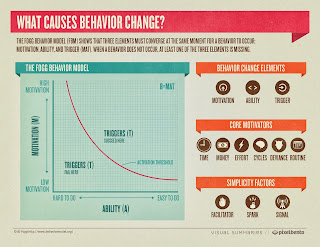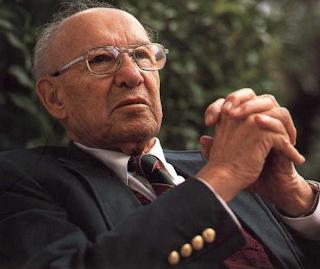What Causes Behaviour Change? The Fogg Behavior Model

Different to ideas presented here by Robin Wright (founder of Engine) who was exploring why the human brain demands so much more energy to change its mind - the implication is that loyalty is actually laziness. Also worth reading is Nir Eyal who blogs at Nir and Far - who writes about behavior and the brain - he has an interesting post on how we deceive ourselves which aligns with Daniel Ariely work.



